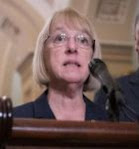After 153 days in session, the Legislature finally adjourned on Saturday, June 29.
Some will tell you we averted a government shutdown. However, that was all posturing. I never really felt or believed there would be a forced shutdown of our state government or any services. Government shutdowns happen because of emergencies or severe budget crisis. Our budget situation was not a crisis.
We had approximately $2.5 billion more in state tax revenue coming in for this biennial budget than we did for the last budget cycle – roughly a 7 percent increase.
It is important to keep that in mind because part of the reason it took almost six months to reach a budget agreement was due to the House majority’s and governor’s insistence on new and increased taxes. In fact, at one time they were proposing more than $1 billion in tax increases. In the end, we ended up with somewhat of a good, the bad and the ugly budget agreement.
Operating Budget
The Good
I voted in favor of the operating budget. It reflected a lot of hard work and long negotiations by members of both chambers and parties. Our leadership was at the negotiating table throughout the process and played the role of facilitator and was vital in helping bring together the two sides.
The spending plan also invests heavily in education dedicating more than $1 billion in K-12 to get us on track to meeting our education funding goals mandated by the Washington State Supreme Court’s McCleary decision. The total education budget for the 2013-15 biennium is $15.1 billion up from the $13.6 billion in the last biennium. There are $31.1 million in policy enhancements and the $1 billion for McCleary includes monies for class-size reduction, full-day kindergarten beginning with at-risk student populations, the Learning Assistance Program and much more.
Higher education also benefited – for the first time in nearly three decades the budget does not include tuition increases. The budget leaves more money in reserves than past budgets with $630 million including $577 million in the state’s protected rainy day fund.
Finally, it does not include the nearly $1 billion in tax increases originally proposed by House Democrats. And it expires more than $600 million in taxes, including those against businesses. Our caucus fought hard to make sure their proposed tax package was taken off the budget negotiating table.
The Bad
Like any compromise, there are some elements to the spending plan I do not support and have some serious concerns. The operating budget:
- takes money out of the state Public Works Trust Fund – the account our local governments rely on for infrastructure and construction projects.
- does not include any of the workers’ compensation reforms we proposed that protect workers and employers, while helping our small businesses aiding the economic recovery and our state’s bottom line. The proposed reforms would have no benefit loss with over $1 billion in savings. We had hoped to stabilize some of the highest workers compensation rates in the nation.
- does not fund the teacher’s COLA and once again it is suspended.
- relies on funding from federal government with the expansion of Medicaid. This raises red flags given the massive debt and spending problems at the federal level.
- continues the implementation of Obamacare and expands Medicaid, based on very expensive promises from an insolvent federal government. There are reports Washington state could see private pay premiums increase anywhere from 34 to 80 percent. Read the Forbes article: Even In Over-Regulated Washington State, Obamacare Will Increase Individual Health Insurance Premiums By 34-80 percent.
The Ugly
Despite the compromised, bipartisan operating and capital budgets passage, there are a number of issues that could fit in the “ugly” category from this session.
House Bill 2075, or the Bracken Bill is about as ugly as it gets [No fooling -- The Democrats insist 2075 is an education bill]. This legislation passed mostly on party lines with House Democrats supporting it.
2075 reinstates the estate tax on married couples’ assets and does so with a retroactivity clause. That means families, who have deceased family members, will have to pay millions in taxes to the state Department of Revenue. The most significant point is this measure changes the rules retroactively so the state does not have to provide refunds to those taxpayers who followed the rules that were upheld by the Washington State Supreme Court. Not only does this set a dangerous precedent, but I believe it is unconstitutional and will be struck down by the same court that upheld the law.
The special sessions themselves were frustrating and certainly ugly. Legislators were called back to Olympia at times for just a couple hours a day and one or two votes. There are going to be hard-nosed stances when you have each party controlling a different chamber. However, we owe it to the taxpayers of Washington to get our work done in a timely manner and negotiate more efficiently. A part-time legislature should not need to spend nearly six months in Olympia negotiation a budget at taxpayer expense. A full-time legislature is not the answer. You need only to look to California to see how that is working for them. Most would probably agree, the longer the Legislature is in session the more damage that could be done.
Real government reforms are still lacking. With the Senate Majority Coalition controlling their chamber I had high hopes. They did a great job of holding together and were able to get a lot out their majority position. Unfortunately, with the uptick in revenue, the House Democrats ended up dropping their push for increased tax revenues, so the Senate was unable to negotiate major reforms as part of the compromise. There were some small reform pieces passed at the last minute, such as a one-stop shop business portal and a review of regulatory rules for manufacturers, but this session has a ‘business as usual’ feel to it when it comes to the way our state agencies operate – and that is a culture we must change.
Transportation tax revenue package
During the second special session, House Democrats led an effort to increase the state’s portion of the gas tax by 10.5 cents over the next 13 months. Combined with the 37.5 cents-per-gallon already collected, Washington drivers would pay 48 cents to the state in gas taxes for each gallon of gas purchased, making it one of the highest in the nation.
Please read the statement "House Republicans on state transportation system: Fix it before you fund it" issued by my colleagues earlier this session. It references a handful of reforms that would begin to ensure that we are getting the biggest bang for our buck in the transportation system.
We have seen a number of issues with the 520-Bridge project -- permit issuance taking much longer than it should, and there is no reason the state should be paying itself sales tax on its own projects.
~~~~~~~~
The State's Budget page link
Additional operating approporiations
~~~~~~~~
New Washington State drunk driving law - raw information
E2SSB 5912, titled AN ACT Relating to driving under the influence of intoxicating liquor or drugs, was passed by the Senate in the 2013 2nd Special Session.
"This bill adds a requirement that a person with a prior offense as defined in RCW 46.61.5055 "Alcohol and Drug Violators" and charged with or arrested for a violation of RCW 46.61.502 "Driving under the influence", RCW 46.61.504 "Physical control of a vehicle under the influence", RCW 46.61.520 "Vehicular Homicide", or RCW 46.61.522 "Vehicular Assault" have an ignition interlock device (IID) installed on all motor vehicles operated by the person as a condition of release, and that they provide proof of installation to the court within five days of release from custody; or that they comply with a 24/7 sobriety program; or both."
"There are approximately 41,000 DUI arrests per year. As many as two thirds of those arrested have a prior alcohol or drug offense in their lifetime, and as many as half of those will be within 10 years of the current arrest. The requirements in the bill could result in an increase in the number of ignition interlock devices installed and associated fees collected resulting from increased compliance due to the verification requirement. However, there is no way to know how many individuals would participate in the 24/7 sobriety program instead or the length of time that vehicle owners would be required to have an ignition interlock devise. Because of the number of unknown factors, it is not possible to estimate how much in fees would be paid as a result of this bill."
"Ignition interlock device installation and operation fees would be paid directly to the authorized vendor. In addition to fees associated with the cost of installation and operation, under existing law persons with an IID pay a $10 ignition interlock installation fee and a $10 60-day calibration fee."
"don't drove drunk"




